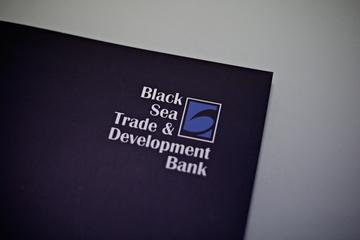
The Black Sea Trade and Development Bank (BSTDB, Thessaloniki) intends to achieve an annual increase in the value of its portfolio by 5-7% in 2021-2030 and increase its volume to EUR 4 billion from the current approximately EUR 2.3 billion, President of the bank Dmitry Pankin told reporters at the conference in Thessaloniki (Greece), which takes place on August 27-28.
“In June 2021, the bank approved a long-term strategy for 2021-2030. Among the goals are signing 30-35 projects per year, increasing commitments (on projects) for the year to EUR 1.7 billion from the current EUR 800 million, in order to achieve EUR 12 billion,” Pankin said.
The President also said that in the face of lower interest rates and increased availability of borrowed funds in most markets where the bank operates, the BSTDB also decided to strengthen its potential for generating projects and subsequently organizing their financing and become a cheaper competitor to leading consulting companies and investment banks.
“Traditionally, development banks have offered long-term cheap financing, but now everyone is ready to provide it. Therefore, our 10-year strategy involves reorienting the bank to a project organizer, a provider of feasibility studies and risk calculation,” Pankin explained.
He added that, unlike consulting companies, BSTDB is ready to take risks in such projects.
In connection with this new strategy, the bank will hire specialists of appropriate qualifications, as well as people for the potential sale of part of the portfolio in order to free up capital for new operating activities, which will also become new in the work of the BSTDB, the president of the bank said. According to him, the BSTDB intends to become more active in marketing and in the search for new projects, whereas clients themselves come to him more often today.
Talking about other institutional goals of the new strategy, Pankin said that the bank would continue to maintain a diversified and balanced portfolio of operations with a public sector share of about 30%, more actively connect to the fast-growing class of “green” investors and remain open to new shareholders – sovereign states and development institutions.
The BSTDB President recalled that member states of the Black Sea Economic Cooperation Organization (BSEC) may become the bank’s shareholders. Since 2014, Serbia has become a member of the BSEC, which has not yet participated in the bank, and since 2021 – Macedonia. According to Pankin, discussions and negotiations are underway with them, but they are still far from over.
Within the framework of the medium-term strategy for 2019-2022, the BSTDB puts an aim of an annual growth of more than 12% and exceeding EUR 2.5 billion of the portfolio at the end of the period, promoting the export of goods and services with a focus on small and medium-sized enterprises, with a special focus on the real economy and infrastructure, including energy, transport and communal infrastructure.
In 2020, the bank signed projects for EUR 624 million, and allocated EUR 785 million for them and for previous projects, increasing the portfolio by 12%. Net profit increased to EUR 14.2 million from EUR 13.7 million in 2019, and the share of bad loans in the bank’s balance sheet is 0.2%.
BSTDB is an international organization uniting 11 states of the Black Sea Economic Cooperation organization. The shares of Turkey, Russia and Greece in the capital are 16.5% each, Romania – 14%, Ukraine and Bulgaria – 13.5% each, Azerbaijan – 5%, Albania – 2%, Armenia – 1%, Georgia and Moldova – each 0.5%. The bank aims to promote economic cooperation, trade and cooperation of the countries of the Black Sea region. The bank’s paid up authorized capital is EUR 0.69 billion, and its long-term credit ratings are “A-” from S&P and “A2” from Moody’s.
The Bank provides medium and long-term corporate loans for up to 10 years, and for project financing – up to 15 years. In the case of the private sector, the volume of a loan can be up to EUR 90 million, for the public sector – EUR 120 million.
At the end of 2020, the largest volume of BSTDB projects was in Turkey – 23.14%, followed by Greece – 18.38% and Russia – 15.6%, while Ukraine accounted for 11.62%, Bulgaria – 7.58%, and Romania – 5.86%.
They were followed by Azerbaijan – 5.09%, Georgia – 4.88%, Armenia – 4.4%, Moldova – 1.77%, and Albania – 1.67%.